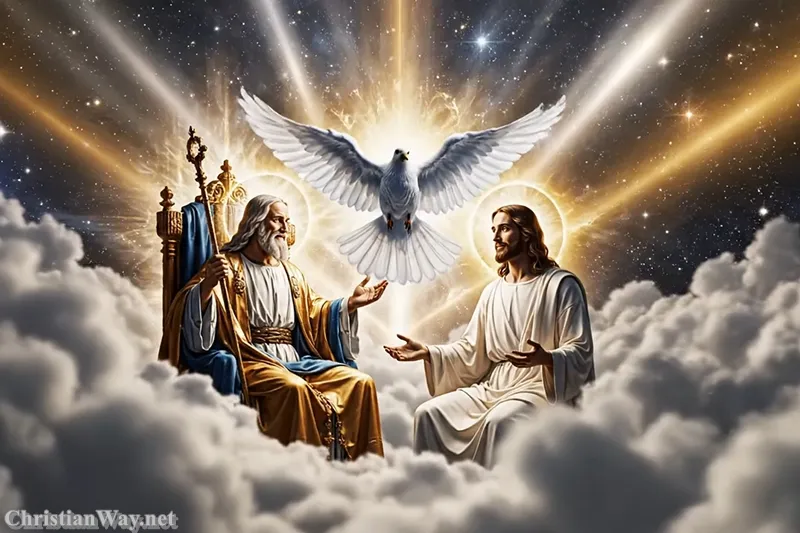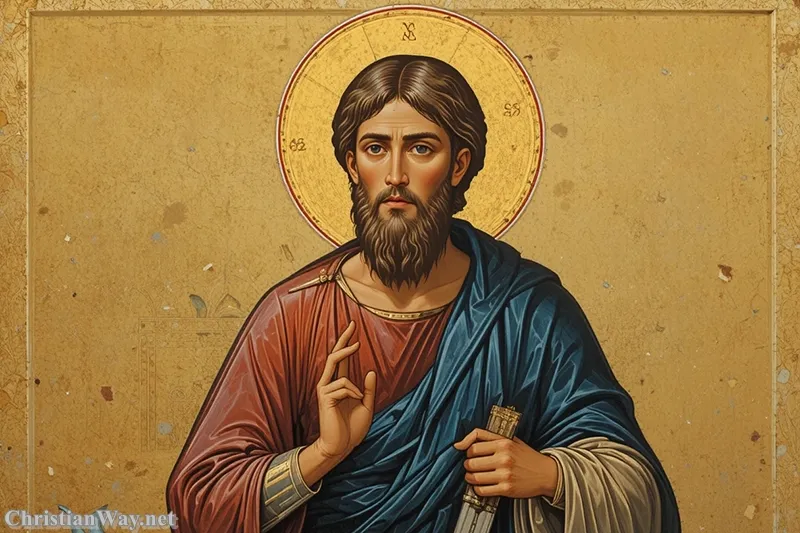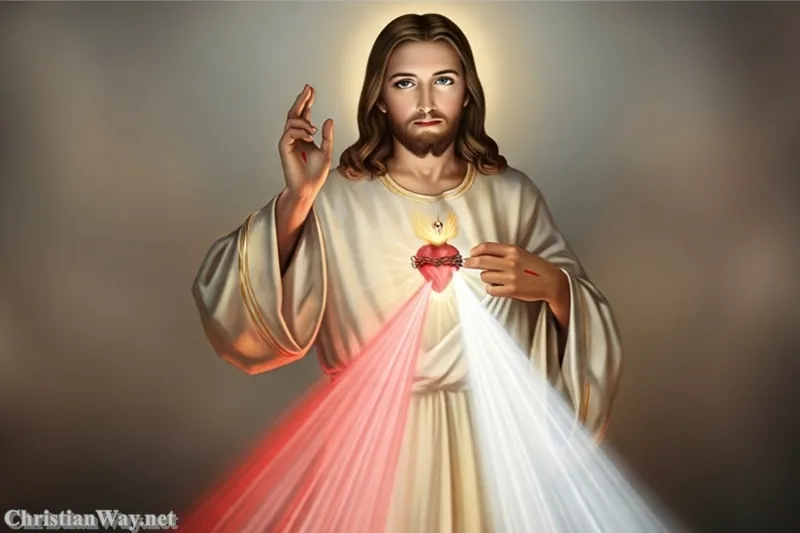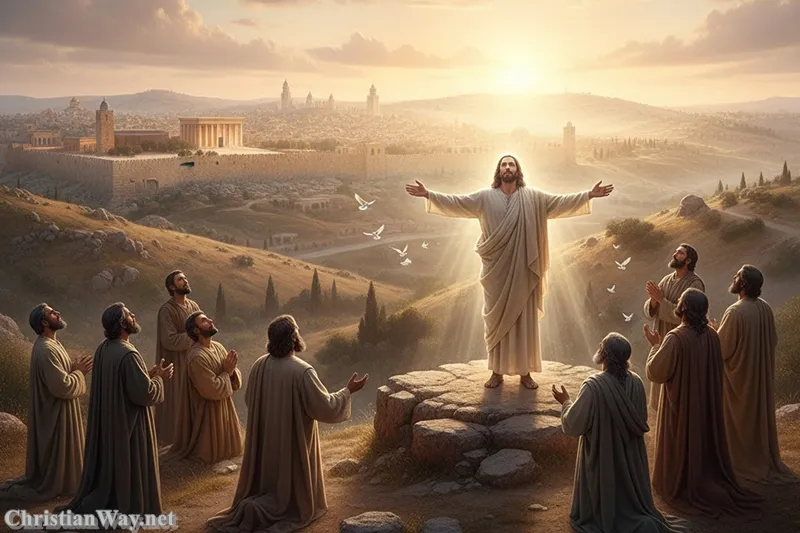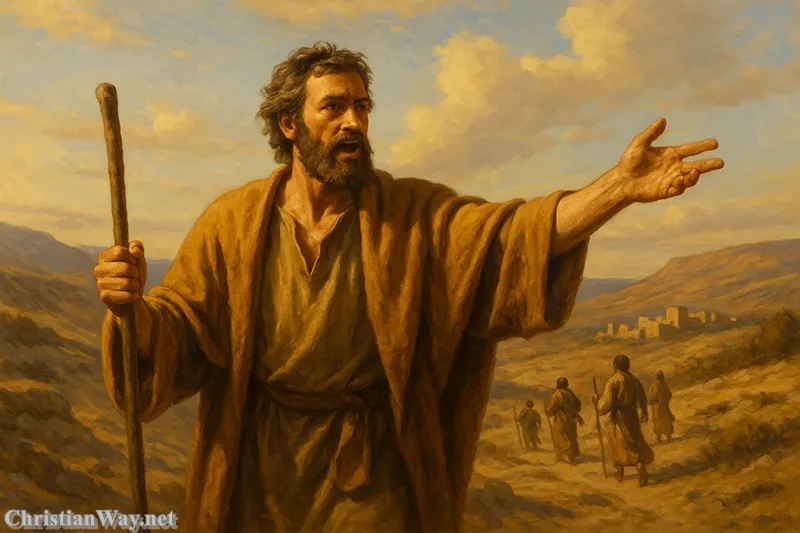Dear friends in Christ,
Every human heart, in its quietest moments, feels the weight of longing — a yearning for healing, forgiveness, and meaning. We live in a world that often speaks of self-redemption, of earning our worth through success or virtue. Yet the Gospel reveals something infinitely deeper: that true redemption does not begin with us but with Jesus Christ, our Redeemer — the One who loved us even when we were lost, and who gave Himself so that we might live.
To call Jesus our Redeemer is to speak of the very heart of the Christian mystery. It is to confess that God Himself entered our human story, not to condemn, but to lift us from sin and death into new life. “For even the Son of Man came not to be served but to serve, and to give His life as a ransom for many” (Mark 10:45). In these few words, we hear the essence of divine love — love that rescues, restores, and renews.

Let us then walk together through the meaning of this sacred truth: who Jesus our Redeemer is, how He redeems, and what redemption means for each of us today.
The Meaning of Redemption in God’s Plan
In Scripture, redemption means to buy back, to reclaim what has been lost or enslaved. It evokes the image of a captive being set free through the payment of a price — a ransom. In the Old Testament, God is often called the Redeemer of Israel, the One who delivers His people from bondage. “I am the Lord, and I will redeem you with an outstretched arm” (Exodus 6:6).
But these ancient promises were only the beginning. Every act of deliverance — from Egypt, from exile, from despair — pointed toward a greater liberation yet to come: the redemption of the human heart itself. Humanity’s true captivity was not political or physical, but spiritual — ensnared by sin, pride, and separation from God.
In the fullness of time, God’s redeeming plan took flesh in Jesus Christ. He did not send a prophet or angel to rescue us from afar. He came Himself — the eternal Word made flesh — to share our suffering and to bear our sins upon the Cross. The Redeemer of the world wore a crown of thorns.
Jesus Our Redeemer: The Incarnation of Divine Mercy
To understand Jesus as Redeemer, we must first behold the mystery of the Incarnation. In taking on our humanity, Christ entered fully into the condition He came to heal. He became like us in all things but sin — that in Him, humanity and divinity might be reconciled.
St. Athanasius wrote: “The Son of God became man so that we might become God.” This ancient phrase captures the breathtaking depth of redemption: not only are we forgiven, but we are made partakers of the divine nature (2 Peter 1:4). Through Christ, the distance between heaven and earth collapses into the embrace of love.
Every act of Jesus’ earthly life — His compassion for the sick, His mercy toward sinners, His obedience to the Father — was a work of redemption. He redeemed not by force but by love, not by demanding payment but by offering Himself. His blood, poured out upon the Cross, is the price of our freedom.
The Cross: The Center of Redemption
The Cross of Jesus stands at the heart of salvation history. It is both the instrument of death and the altar of love. On that wood, our Redeemer transformed the greatest symbol of suffering into the sign of victory.
The Apostle Paul proclaimed, “In Him we have redemption through His blood, the forgiveness of sins, according to the riches of His grace” (Ephesians 1:7). Redemption is not a transaction but a transformation. The Cross is not simply the payment for sin; it is the revelation of how far God will go to bring us home.
When we look upon the Crucifix, we see more than sorrow — we see the measure of love. The Redeemer hangs between heaven and earth, His arms outstretched in eternal welcome. He bears every human wound: betrayal, loneliness, fear, injustice. He redeems not by erasing suffering, but by filling it with meaning.
The Power of the Blood of Christ
In the ancient world, the blood of sacrifice symbolized life itself. When Jesus shed His blood, He gave His life for the life of the world. “The blood of Jesus His Son cleanses us from all sin” (1 John 1:7). In that crimson flow from His pierced side, the Church was born — the water and the blood symbolizing the Sacraments of Baptism and the Eucharist, through which redemption is made personal and real.
Each time we receive the Holy Eucharist, we are drawn again into the mystery of the Redeemer’s love. The same Jesus who died for us now lives within us, making our hearts the dwelling place of His grace.
Redemption and Freedom: The Gift of a New Life
To be redeemed is to be made free — but not merely free from sin; free for holiness, love, and eternal communion with God. “If the Son sets you free, you will be free indeed” (John 8:36).
The world often defines freedom as the absence of restraint. Christ reveals that true freedom is the power to love rightly. Sin enslaves the will, but grace restores it. Redemption does not erase our humanity; it restores it to its original beauty, reflecting the image of God.
When we live as redeemed people, our lives become signs of hope. We forgive as we have been forgiven, serve as we have been served, and love as we have been loved. The Redeemer’s work continues through us, as His grace reshapes our desires and renews our hearts.
The Redeemed Community
The Church, the Body of Christ, is the living community of the redeemed. Through Baptism, we are united to the death and resurrection of Jesus, becoming sons and daughters of the Father. Through the Eucharist, we are nourished by the very life of our Redeemer.
Every act of charity, every word of mercy, every gesture of reconciliation extends the redemption of Christ into the world. The redeemed become redeemers — not by their own power, but by reflecting the love they have received.
The Redeemer’s Compassion for the Broken
There is no life beyond the reach of Jesus our Redeemer. He enters the darkest corners of human suffering with healing light. He is the Redeemer of the addict, the prisoner, the doubter, the weary soul who believes they are beyond grace.
Christ’s redemption is not abstract. It is deeply personal. It reaches the mother who grieves, the sinner who repents, the lonely heart that longs for peace. His mercy does not wait for us to be worthy — it comes precisely because we are not. “While we were still sinners, Christ died for us” (Romans 5:8).
When we bring our wounds to Him, they do not vanish — they are transfigured. The Redeemer turns our shame into testimony, our weakness into strength, our despair into hope.
The Redeemer and the Resurrection
The story of redemption does not end at Calvary. The Cross leads to the empty tomb. The Redeemer who died has risen, and in His resurrection we find the fullness of our salvation.
By rising from the dead, Christ redeems not only from sin but from death itself. He conquers the final enemy and opens for us the way to eternal life. “I am the resurrection and the life,” He declares. “Whoever believes in Me, though he die, yet shall he live” (John 11:25).
In the risen Redeemer, all creation finds its renewal. The same power that rolled away the stone can also roll away the stones that block our hearts. Redemption is not only something that happened two thousand years ago — it is happening now, wherever Christ’s grace is received.
Living the Mystery of Redemption
To live as those redeemed by Jesus means to walk daily in gratitude, humility, and trust. It means allowing His love to shape our thoughts, decisions, and relationships.
When we forgive those who hurt us, we share in His redemptive mercy. When we stand with the poor and broken, we carry His compassion into the world. When we bear our own crosses with faith, we participate in His redeeming work.
The saints teach us that the Redeemer’s love can transform even the smallest act done in love into a moment of grace. Redemption is not only about salvation at the end of time; it is about sanctification in the present moment — learning to live as beloved sons and daughters of God.
The Redeemer in the Sacraments
The work of our Redeemer continues most powerfully in the Sacraments of the Church.
- In Baptism, we are washed clean and made new, dying and rising with Christ.
- In the Eucharist, we receive the very Body and Blood of the Redeemer, becoming one with Him.
- In Reconciliation, we encounter the Redeemer’s mercy afresh, as He lifts the burden of sin and restores peace to our souls.
Each Sacrament is a touch of the Redeemer’s hand upon our life — tangible grace flowing from His pierced heart. Through them, Christ remains Emmanuel, “God with us,” redeeming and sanctifying every stage of our journey.
Hope in the Redeemer
In a world marked by conflict, loss, and confusion, the message of Jesus our Redeemer remains the surest anchor of hope. His Cross reminds us that no suffering is meaningless. His Resurrection assures us that love is stronger than death.
When we feel overwhelmed by the weight of our own failures or the darkness of the world, we can whisper with faith: “Jesus, my Redeemer, I trust in You.” This simple prayer is an act of surrender, a way of letting His mercy reach the deepest parts of our soul.
Redemption is not only God’s act in history; it is His ongoing work in our hearts — the quiet miracle of grace that turns sinners into saints, fear into faith, and death into life.
Reflect and Pray
Beloved in Christ, our Redeemer has already paid the price of our freedom. He invites us not merely to believe in redemption but to live it — to walk in the light of His mercy and to let that mercy flow through us to others.
Let us pause and pray:
Lord Jesus our Redeemer,
You have ransomed us with the price of Your own Blood.
You have broken the chains that bound us in sin and death.
May we live each day in the joy of Your salvation,
offering our lives as instruments of Your love.
Redeem what is wounded within us,
restore what is lost,
and renew the world through Your grace.Amen.
May the peace of Christ, our Redeemer, dwell richly in your heart — and may His saving love guide your every step until we meet Him in glory.
— Fr. John Matthew, for Christian Way

